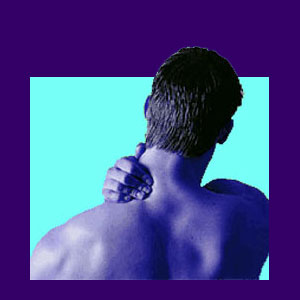
Chronic pain depression is a very serious mindbody disorder which often begins in association with severe ongoing illness or injury. Depression is a multi-symptomatic health issue which in itself can be a big problem for any affected individual. Depression is a known contributor to malaise, anxiety and even suicide. When combined with the unbearable suffering of chronic pain, depression can be a life altering event which may require professional medical or psychological intervention.
Treatments for depression feature some of the worst side effects in the pharmaceutical sector. Some depression drugs are the equivalent of a lobotomy in pill form.
This essay details the relationship between enduring pain and the development of depression syndromes.
Chronic Pain Depression Symptoms
Depression is characterized as a pervasive negative emotional state. Sadness, loss of interest in life and activities, suicidal thoughts, hopelessness, listlessness, insomnia, changes in appetites or sexual behaviors and an all over feeling of doom are typical symptoms.
Physical pain is a usual accompanying factor and this discomfort might be very severe in some cases. Back pain might be a result of depression and depression may be a result of back pain. Regardless, it is clear that when combined, these two symptomatic disorders can make life an eternal hell for any poor soul.
I have personally witnessed depression to be a significant factor for a great number of patients with chronic pain. In some cases, the emotional consequences are far worse than the physical pain itself.
Treatment for Depression from Chronic Pain
Just like symptomatic treatment is common in the back pain industry, modern medical science typically treats depression using drugs, rather than far more effective and meaningful psychotherapy.
Treating depression with drugs is not a real solution and often simply forestalls a more aggressive symptomatic expression or sets the stage for substitute symptoms. This is because depression is the result of an internalized psychological process, not a physical chemical imbalance, as mostly described by pharmaceutically-focused psychiatrists.
Treating the chemical signs of depression is no better than treating the symptoms of back pain. There is no cure enacted and the patient is doomed to suffer from an ongoing psychoemotional symptom imperative.
Psychotherapy usually demonstrates much better curative results with both physical pain conditions, such as tension myositis syndrome, as well as purely emotionally-based depression syndromes.
Chronic Pain Depression Help
I know that chronic pain or illness can be a real burden. After a long time, it is easy to lose all hope for a normal life and sink into a deep and dark emotional place. I suffered this downward spiral for many years, despite being a generally upbeat and optimistic person at heart. There is just so much suffering a person can take, before their spirit is broken, and my chronic lumbar back pain brought me to this limit and beyond.
For some patients, depression can become as big of a concern as their physical pain and sometimes, even more of a life threatening disorder. If you are suffering from depression caused by back pain, or back pain related to emotional depression, it is time to seek help. Try to avoid fast fixes using mind altering drugs. These products might change the chemical content of your brain, but will not resolve the underlying emotional issues driving the symptomatic processes.
It is only a matter of time before pharmaceutical treatment will fail you or result in a new symptomatic expression. Think deeper and do not be afraid to explore your internalized anger, guilt and fears. These are the real answer to beating both chronic pain and depression once and for all.
Back Pain > Psychology of Back Pain > Chronic Pain Depression




